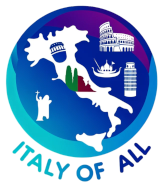The province of Rieti, located in the Lazio region of central Italy, is often celebrated for its serene landscapes, rich historical heritage, and strong cultural traditions. Nestled in the heart of the Italian peninsula, Rieti is surrounded by the Sabine Mountains, offering stunning natural beauty and a tranquil retreat from the bustling urban centers nearby.
Geographically, Rieti is characterized by its mountainous terrain and lush valleys, which are integral to the region’s identity. The Velino and Turano rivers flow through these valleys, creating fertile lands ideal for agriculture. Lake Salto and Lake Turano, both artificial lakes, add to the region’s scenic charm and provide recreational opportunities such as fishing, kayaking, and hiking.
Historically, Rieti’s area has been significant since ancient times, particularly during the Roman era when it served as an important administrative and military center. The province’s medieval architecture is also prominent, with numerous castles, monasteries, and churches dotting the landscape, reflecting its historical development through the centuries.
Culturally, Rieti maintains a vibrant local culture, with several festivals and events that celebrate its history and traditions. The annual “Festival of Saint Anthony,” which includes a blessing of the animals and a large parade, is a significant event that draws both locals and tourists. Additionally, Rieti’s culinary and artisan traditions, including woodworking and ceramics, play a crucial role in its cultural identity.
Cuisine in Rieti is typical of central Italian mountain regions, focusing heavily on local ingredients like truffles, mushrooms, and game. “Porchetta,” a seasoned and roasted pork dish, is a culinary specialty from this area. Rieti is also known for its lentils from Castelluccio, which are considered some of the best in Italy due to the unique growing conditions provided by the high-altitude plains.
Economically, Rieti’s economy is primarily based on agriculture, with significant contributions from the production of olive oil and wine. The province also benefits from small-scale manufacturing and a growing tourism sector that capitalizes on its natural landscapes and historical sites. Efforts to promote eco-tourism and outdoor sports have been increasingly important in recent years.
Despite challenges such as geographic isolation and economic diversification, Rieti is focusing on leveraging its natural and historical assets to enhance its economic profile and improve the quality of life for its residents. This includes initiatives to improve connectivity with major cities and promote sustainable development practices across the province.
Overall, the province of Rieti offers a distinctive blend of natural beauty, historical depth, and cultural richness. Its ongoing efforts to preserve its unique heritage while fostering economic growth ensure its continued significance in Italy’s cultural and economic landscape.
Comuni in Rieti Province:
- Accumoli
- Belmonte in Sabina
- Amatrice
- Ascrea
- Borgo Velino
- Borgorose
- Antrodoco
- Borbona
- Castelnuovo di Farfa
- Casperia
- Casaprota
- Castel di Tora
- Cantalupo in Sabina
- Fiamignano
- Contigliano
- Fara in Sabina
- Cittareale
- Configni
- Collevecchio
- Colle di Tora
- Collalto Sabino
- Concerviano
- Colli sul Velino
- Collegiove
- Cittaducale
- Forano
- Cottanello
- Frasso Sabino
- Magliano Sabina
- Greccio
- Marcetelli
- Leonessa
- Longone Sabino
- Labro
- Montenero Sabino
- Montasola
- Monte San Giovanni in Sabina
- Montebuono
- Morro Reatino
- Montopoli di Sabina
- Mompeo
- Micigliano
- Monteleone Sabino
- Orvinio
- Riofreddo
- Poggio San Lorenzo
- Poggio Moiano
- Poggio Bustone
- Roviano
- Pozzaglia Sabina
- Rivodutri
- Poggio Catino
- Poggio Nativo
- Rocca Sinibalda
- Petrella Salto
- Pescorocchiano
- Roccantica
- Rocca Santo Stefano
- Poggio Mirteto
- Scandriglia
- ** Stimigliano
- Tarano
- Toffia
- Turania
- Torricella in Sabina
- Varco Sabino
- Torri in Sabina
- Vacone
